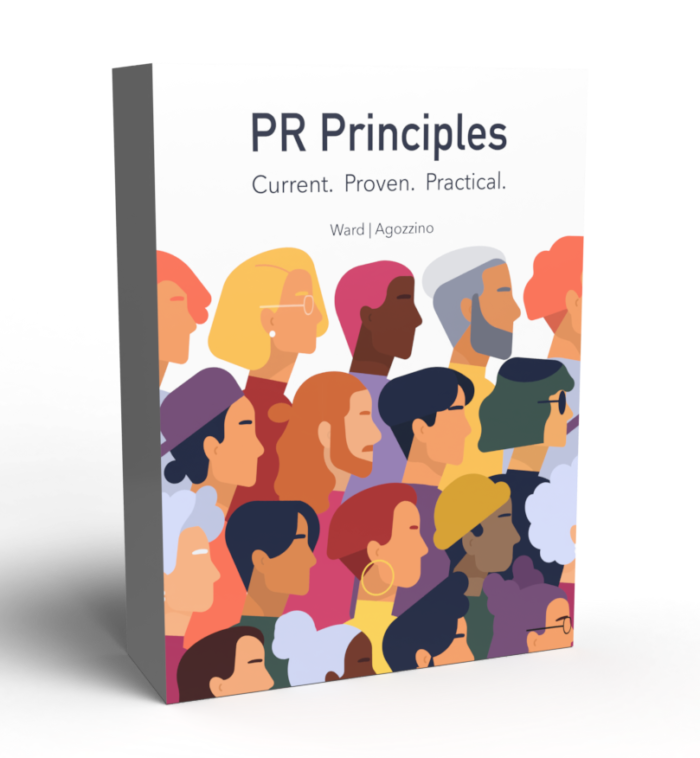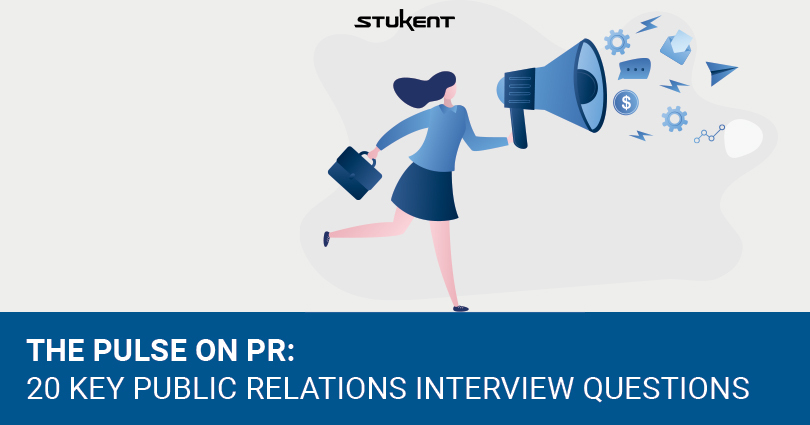The definition of a public relations (PR) specialist: a juggler performing daily hat changing acts. Okay—that’s not the official definition; however, the field of PR does demand versatility. When the time comes to interview for a PR job, you can expect diverse questions and topics will come up. After all, PR professionals tend to hold more than one position. PR specialists communicate with the public, create content, and join forces with marketers, advertisers, and journalists in completing their day-to-day tasks.
All companies need PR personnel. They’re the link between the company and the public. Whether an employer is under fire or thriving, a PR specialist is the cornerstone for creating opportunities and increasing awareness for a positive company image. The U.S Bureau of Labor Statistics reports that the demand for PR specialists will grow seven percent from 2019 to 2029. This outlook will translate to nearly 20,000 job acquisitions during that period, which the bureau notes is faster than the average expansion in a career field.
Soft skills, like being able to think outside the box, problem-solving, and adapting to changing environments, are all important to build and exhibit in this creative industry. PR was ranked third for “Best Creative and Media Jobs of 2020” by U.S. News and World Report. It’s essential for these industry professionals to maintain a calm, cool, and collected approach when problem-solving and adapting to the constantly evolving trends in the industry. What’s just as crucial is having a firm footing on the hard skills. All PR personnel need to be proficient in conducting research, executing campaigns, and comprehending the ethical and political issues that can emerge in this field.
Below are 20 questions every student needs to know when answering interview questions for any PR position. See which questions you can answer with ease and the areas you need to refine.
If you’re a professor teaching PR, check out “PR Principles” by Dr. Jamie Ward and Dr. Alisa Agozzino. This hands-on approach e-textbook revolves around crucial skill sets needed as a PR practitioner, providing information on content creation, social media, crisis communication, ethics, planning, evaluation, and more!

Request free instructor access here to see how your students can confidently answer all of the questions below using “PR Principles.”
20 Practical Interview Questions for Public Relations
- What are the four models of PR?
- What is a SWOT Analysis?
- Which PRSA Code of Ethics value stands out to you and why?
- How does PR tie in with marketing, advertising, and journalism?
- What are the different types of research that can be conducted in PR?
- What is the role of persuasion in PR?
- How would you go about measuring the success of a campaign?
- What do you feel is the best process for reaching out to media contacts?
- What are the essential pieces of material to include in a media kit?
- Define SMART goals.
- What are the advantages and disadvantages of the various types of primary research?
- Why is storytelling necessary in PR?
- What are the differences between a hard and a soft news feature?
- Describe your process for determining the right social media platform(s) to leverage in a PR campaign.
- What are the types of PR crises a company can face?
- What are the key factors for managing a crisis?
- Why is a global approach to PR important?
- What recent PR campaigns have you been impressed with? What company and why?
- What are the features of a strategic program plan?
- How does corporate responsibility tie in with PR?
Classroom Application: Instruct students to choose four questions from the above list. Have them write down their responses to the selected questions as if they were in a real job interview. Allot only 10 minutes for students to complete this activity. How would they answer these questions on the spot in front of their potential future employer? *Tip: Encourage students to select questions they might feel less confident in answering. After the 10 minutes are up, have students share one of their responses with the class.






